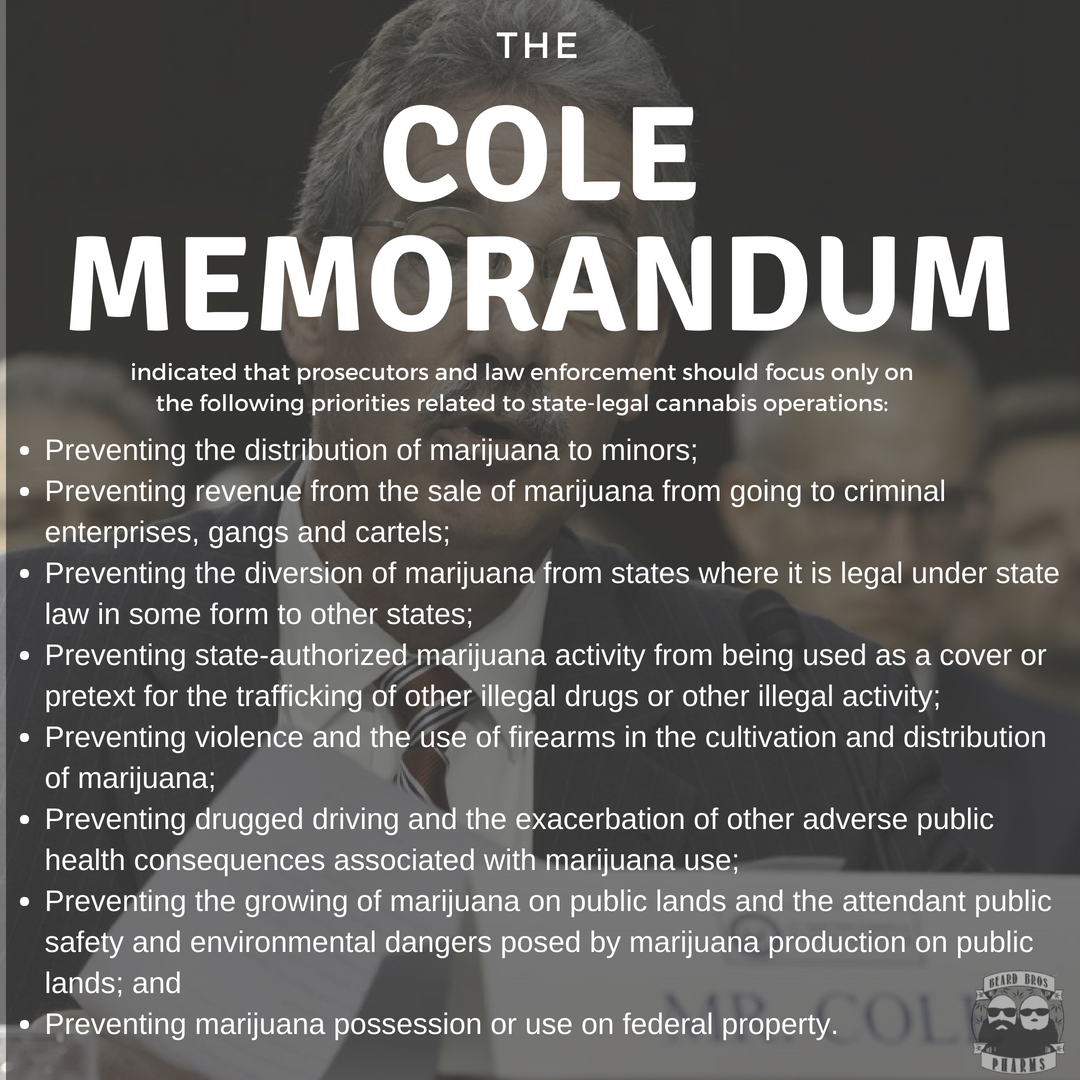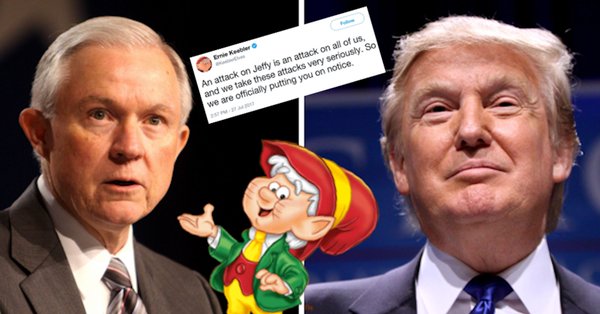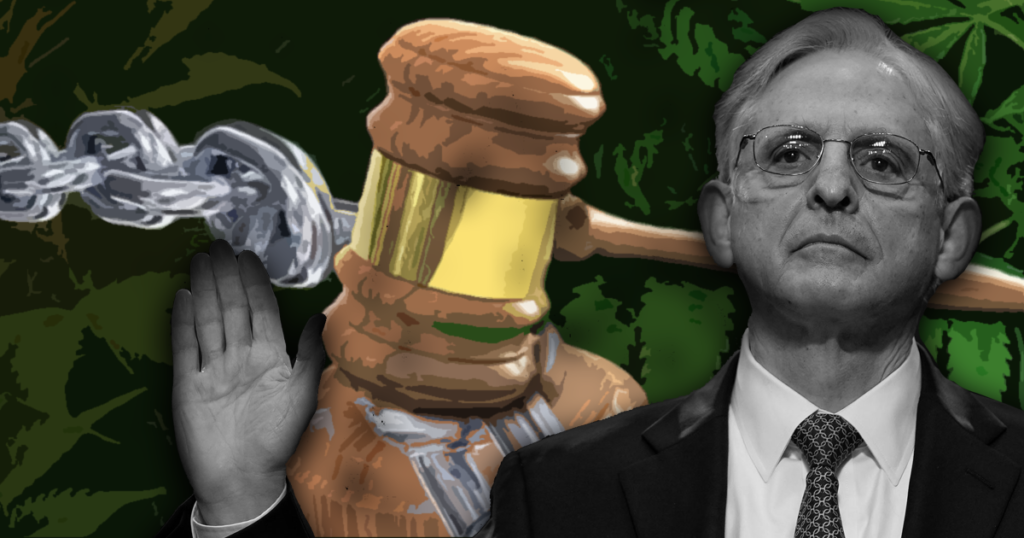As rapidly as the cannabis reform movement has grown, and as influential as it has become politically, we have another new president whose true views on cannabis remain a mystery.
Yeah, yeah… we know that President Biden has allegedly “evolved” his thinking on the plant. We are told the same about his VP, Kamala Harris, whose cringe-worthy campaign trail quips about cannabis use fell flat with folks who were well aware of her record as an anti-cannabis prosecutor during her Cali come-up.
Therein lies the mystery – what will they actually do to make right the past wrongs put upon cannabis consumers for decades?
In between a stubborn opposition party on his right, and rabid progressives on his left, Biden is trying to walk a fine line in order to get his preferred cabinet member nominations approved and it has been refreshing to see pretty much every last one of them get grilled, if even for just a minute or two, about their thoughts on cannabis legalization and what role, if any, the feds should play in it.
So far anyway, none of these weed-related portions of testimony has been as compelling as that of Biden’s choice for the new head of the U.S. Department of Justice as Attorney General, a man named Merrick Garland.
The collective groan let out by grassroots cannabis advocates when Garland’s name was leaked as Biden’s likely pick could probably have been heard from space, as an old, white judge hardly seemed like the champion needed to address the systemic racism at the root of cannabis prohibition.
The fact of the matter is, the U.S. Attorney General – hell even the President of the United States – will never be the champion of cannabis reform, but it might help having them on the championship team.
U.S. ATTORNEY GENERAL vs CANNABIS: A BRIEF HISTORY
Though a rudimentary patchwork of cannabis laws existed in progressive pockets of the country before his time, it wasn’t until Barack Obama took office that we saw coalitions truly form and a cannabis movement be born.
As our national economy, and we ourselves, clawed our way back from the brink of financial collapse in 2008, many states and local municipalities turned to cannabis as a new form of easy tax revenue.
President Obama’s first pick to run the U.S. Department of Justice as the nation’s Attorney General was Eric Holder who also happened to be the first African American to hold the post. Under AG Holder, America was introduced to the Cole Memorandum, named after Holder’s Deputy AG at the time, James Cole.

The Cole Memo was drafted and released as a direct response to the rising tide of pro-cannabis legislation beginning to spread across the nation at the state level. Issued on August 29th, 2013, the Cole Memo was addressed to all U.S. Attorneys instructing them that, due to a lack of federal resources, they should immediately cease all prosecution efforts of low-level cannabis possession in states that have “legalized marijuana in some form and … implemented strong and effective regulatory and enforcement systems to control the cultivation, distribution, sale, and possession of marijuana”.
The announcement came during a Wild West era in weed when trailblazing states like California were seeing dispensaries being raided daily and given no protection under the state’s extremely grey medical cannabis laws at the time.
These early marketplaces were shot through with loopholes and compliance issues which made it easy to get into a market as an operator but left those operators extremely vulnerable to local, state, and even federal law enforcement.
With the rise of quasi-legal cannabis came the rise in popularity among cops to seize assets from those who were starting to find success growing, processing, or selling MMJ.
There are plenty of people with a criminal record to back up their statement who can attest that all the raids, all the arrests, all the asset forfeitures didn’t stop overnight because of the Cole Memo, but as toothless as it was, it did have a rippling impact across the country as most federal prosecutors were happy to focus on fighting real crime instead.
Fast forward just a few years from then and Obama was out and Donald Trump, of all people, captured the Republican nomination and rode it all the way to the White House in 2016.
Talk about a mystery… Nobody knew what Trump was going to do about cannabis or anything else for that matter, but his modus operandi came into focus pretty quickly: undo everything the previous president did, no matter what.
When it came to cannabis, that meant that Trump’s new Attorney General – former Alabama Senator Jeffrey Beauregard Sessions III – could play out his hatred for the cannabis plant by shredding the Cole Memo completely.
This action came after multiple panels and studies recommended that it remain untouched but that didn’t stop the evil Keebler Elf AG Sessions from rescinding the memo on January 4th, 2018.
 You may also remember that ol’ Jeffrey *poof* vanished from his position as the Attorney General of the United States well before he was able to put his personal pot prohibition plan into action, getting Tweet-fired by Trump for telling the truth about his own hanky-panky with the Russians.
You may also remember that ol’ Jeffrey *poof* vanished from his position as the Attorney General of the United States well before he was able to put his personal pot prohibition plan into action, getting Tweet-fired by Trump for telling the truth about his own hanky-panky with the Russians.
Whether you realize it or not, the cannabis reform movement dodged a giant bullet with that fortunate stroke of incompetence at the top.
What came next was a bit of a revolving door of part-time AG’s for Trump as he waded in and out of conspiracy theories and actual controversies trying to find the right lap dog.
That mutt turned out to be a man named William Barr who is sort of St. Bernard-ish in the face and body type but looks more like a frightening toad monster on an anti-cannabis roller coaster ride if we are getting technical.
Blessed yet again by the endless scandal that enveloped Barr’s DOJ, the cannabis community avoided what could have been a disastrous intervention by the Feds and as a result, the clock ran out on the Trump administration.
That brings us back to Biden and his pick for top cop, Merrick Garland.
A NEW ATTORNEY GENERAL, A NEW HOPE FOR CANNABIS REFORM?
Though he has not been confirmed yet, and though he is probably going to be snubbed for a second time by Republican lawmakers, all indications are that Merrick Garland will be the next U.S. Attorney General.
What people say in order to get a job and what they actually do once they have the job don’t always match up, but so far, Garland is saying most of the right things when it comes to cannabis.
When asked by Senator Cory Booker (D-NJ) about his thoughts on racial disparity in arrest rates in general, and in cannabis-related arrests specifically, Garland made history by being the first nominee for U.S. Attorney General to speak openly, on the record, about systemic racism in cannabis arrest stats, saying, “The marijuana example is a perfect example. Here is a nonviolent crime that does not require us to incarcerate people and we are incarcerating at significantly different rate(s) in different communities. That is wrong and it’s the kind of problem that will then follow a person for the rest of their lives. It will make it impossible…to get a job and will lead to a downward economic spiral.”
This acknowledgment that the War on Cannabis disproportionately and detrimentally affected communities of color is long overdue, but Garland delivered it as a solid 1-2 punch by pointing out the trap that gets set by that systemic racism and how it disrupts an individual’s opportunities forever by leading to lower wages, reduced wealth accumulation, limited education and job opportunities, and multi-generational poverty.
“We can focus our attention on violent crimes and other crimes…and not allocate our resources to something like marijuana possession,” Garland continued, “We can look at our charging policies and stop charging the highest possible offense with the highest possible sentence.”
- Systemic racism in law enforcement.
- A need for social equity.
- Sentencing reform for cannabis crimes.
All in one paragraph… that is promising language from Garland, especially if he truly recognizes the direct link between those societal problems and continued cannabis prohibition.
As we alluded to above, however, Garland alone cannot change the way America treats the cannabis plant, nor can Biden.
From de-scheduling the plant to freeing cannabis prisoners, the reach of the Department of Justice and the president himself is limited to federal laws, crimes, sentences, and records.
With a dwindling few exceptions at the state and local level, cannabis reform is almost unbeatable and massive pro-cannabis voting blocs are forcing their state lawmakers and governors to bend to their will, to legalize the plant, and to start expunging past crimes and commuting current sentences for non-violent cannabis prisoners.
AG Garland and President Biden can do their part, and put action to their words, by flexing all of their power at the federal level, by encouraging and supporting the states that embrace the will of their voters, and by putting pressure on the few final Prohibitionist stronghold states.
No more memos, it’s time for action.






















